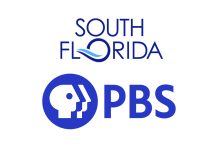
As the greater community begins to anticipate the realities and potential consequences of the recall effort launched by Norman Braman to unseat Miami-Dade Mayor Carlos Alvarez, the volume of the debate is rising and emotions on both sides are heating up.
In this atmosphere, it is essential that members of the public have a clear picture of and a high degree of confidence in the fairness and accuracy of the process we will use to canvass and tabulate the approximately 113,000 individual petition forms delivered to my office by truck on Nov. 5. The Elections Department has established that 51,992 valid signatures of voters are needed to force a recall election.
To help you visualize the utter massiveness of this unprecedented submission: picture each petition form laid end to end spanning 24 miles of paper, enough to cross Biscayne Bay from Downtown Miami to South Beach and back again — twice.
Mr. Braman submitted 113 boxes with approximately 113,000 separate legal-sized petition forms each with the signature of only one petitioner, the signature of the circulator and the signature and stamp of the notary — each box containing approximately 1,000 forms, 10 batches in a box. Once submitted, all of it became public record!
And as such, maximizing security and enabling access and the ability to retrieve became job one of the petition canvassing process. Managing and modernizing court and property records successfully has given the Clerk’s Office personnel valuable and relevant experience. It’s a part of our DNA as an organization.
Our first challenge was to log in the total submission, re-verifying the batching and number of the boxes. We then stored them in a fully secured area, laid out and maintained in consecutive order so as to constitute a “library” of the actual paper petition forms.
We then systematically scanned each and every petition form with high resolution, high speed electronic scanners — all the while maintaining the “library” placement of the 113 boxes for easy access to any individual form if needed for any reason.
The scanned images will be viewed along side the signatures appearing in the Voter Registration Rolls on some 20 plus dual-screen computer workstations, thereby facilitating the step-by-step comparative judgment process without having to expose the original forms to loss or damage. We also will be checking each form’s full compliance with the requirements of County Ordinance 12-23 as written; the County Attorney’s Office having already passed on the Constitutionality and Legal Sufficiency of the Ordinance.
The next challenge was to select the individuals to be utilized at these workstations where, among other tasks, the difficult comparisons must be made between a recent signature on a petition form and a signature on a voter registration card, which might be much older.
Though tempting, I rejected deputizing Elections Department part-timers who already were trained in similar processes involving verifying absentee ballots, in order to avoid even the appearance of bias or conflict of interest. I will likewise seek to screen out anyone from the process who has taken a public position on either side or for any reason feels unable to be fair and impartial.
My decision is to deploy approximately 40-plus highly capable and impartial personnel from Clerk’s Office operations, already versed in the Clerk’s Office culture of technological innovation and the responsibilities inherent with having custody of the public record. In addition, we’ve secured the services of one of South Florida’s most outstanding Forensic Document Examiner (handwriting expert) Dianne Flores to provide the training and screening of our team. She also will be available to offer assistance in the most difficult to determine instances, which will be batched for her review.
Having personally served on several canvassing boards over the years, I can appreciate the intricacies and sometimes tedious nature of the signature comparison process. I know that it requires total focus and concentration.
I have, therefore, resolved to allow observers, but to keep them at a prescribed distance from the 20-plus workstations where this demanding work is to be done. I will not allow anyone to distract, intimidate, influence or in any way disrupt the environment needed to do this work.
Detailed records will be kept so that every single decision to either accept or reject can be easily reviewed and any individual paper petition form can be easily accessed and examined. This assures all sides that there will be ample opportunities to review any decision once we’ve finished our job and are in a position to certify the results of our canvass.
We are determined to provide the professional, methodical, neutral, secure and transparent process the people of our county demand and have a right to expect.
Note: In all other counties in Florida, the Supervisor of Elections is an independent elected official who manages all election related processes including recalls of elected officials. In Miami-Dade the Clerk of Courts is an independent Constitutional Officer who does not work for either the Mayor or the Board of County Commissioners. The Charter designates the Clerk’s Office to both approve the form of a recall petition and to be responsible for the custody and the canvassing of petitions once submitted.







Harvey Ruvin has always throughout his public service career been a person of impeccable integrity. I have complete confidence that the recall will be conducted properly, though I personally think the recall is a waste of time and resources.